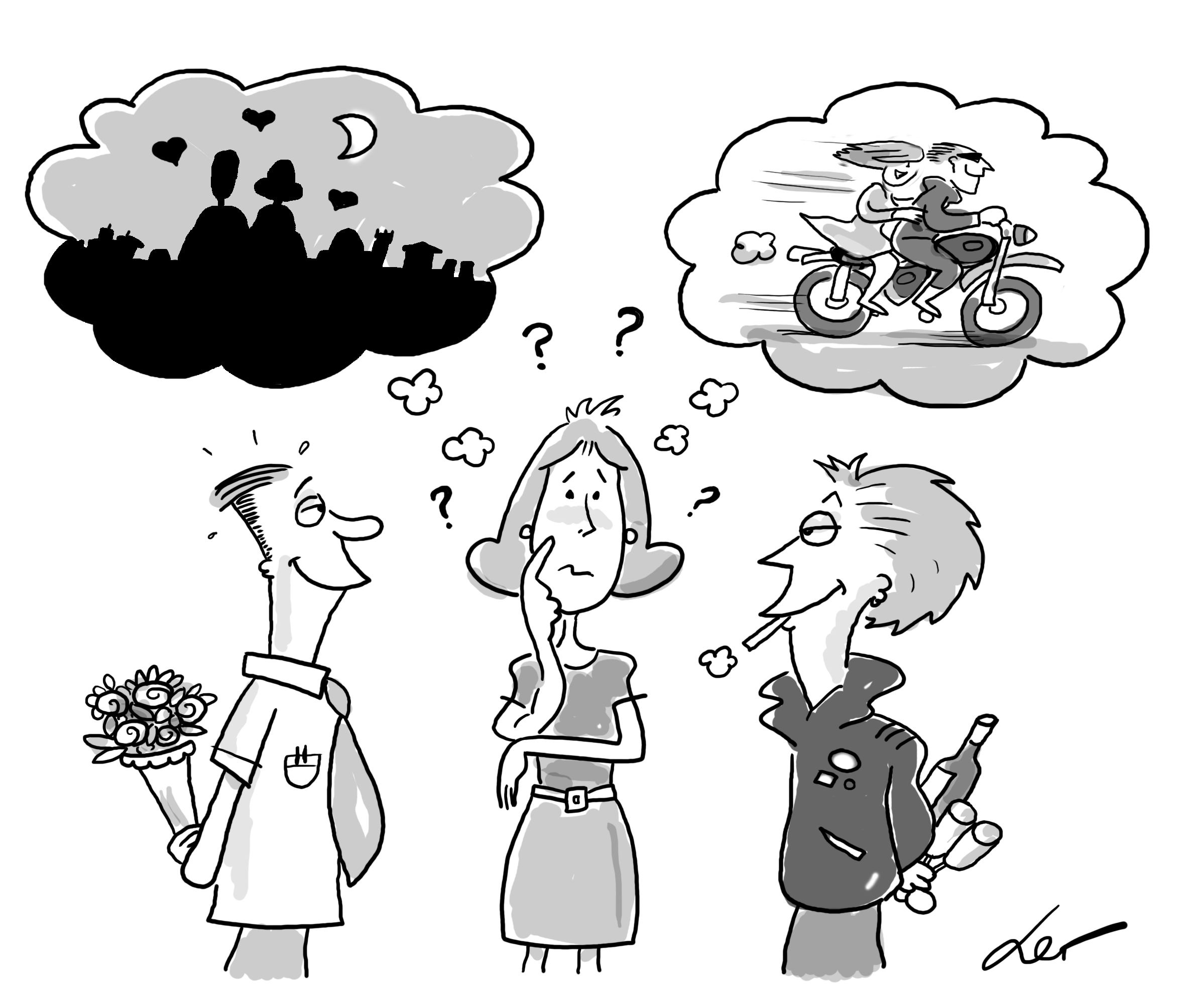It’s day five of their education abroad adventure in Florence, and my students are worried. Overseas for the charm of glossy exported Italianness, most are shocked to discover that the Italians they’ve encountered in the bars, banks, and Benettons throughout the city are as expressive as baccalà, dried salty cod-fish. Where, they wonder, are the jolly pizza-making Marios they expected? Where are the whimsical, wiry-haired Benignis? How come the friendly, happy-go-lucky Italians that populate their collective consciousness are not out roaming the piazzas?
“The people here aren’t very nice,” a student will invariably tell me.
“Well,” I say with a knowing nod, “Being nice isn’t a Florentine goal. They don’t see themselves as ‘nice people.’ They are gente simpatica, but not nice people.”
“I thought simpatico was the word for nice,” she protests.
Yes. It’s true. Most heavy dictionaries and harried language teachers will tell you that. It’s a question of simplicity. In reality though, the two words are actually quite different. Simpatico has a lot more to do with being smart and fun, than it does with being nice. Nice describes those polite positive thinkers of indisputable moral fibre. Simpatico has none of the same do-gooder implications. Nice people remember to call you on your birthday. They send thank-you notes and are the first to RSVP to written invitations. Gente simpatica just show up and are the life of the party.
In English, nice people are out there to make a difference. Gente simpatica are not. Often slightly cynical and very comfortable with jest, gente simpatica are not aiming to make the world a better place. They are already quite satisfied with how things turn out. After all, gente simpatica know how to flip the frittata and make ugly things bearable by the sheer cleverness of their wit. “If we can’t change it, then let it at least serve to entertain us,” my colleague Niccolò tells me often. “Yes, the traffic is horrible, the politicians corrupt, and the wages ridiculous, but we can still decide what to laugh at.” Indeed, Gente simpatica serve up humour with all its scalding heat and swallow it down equally well, without watery eyes. It’s a Tuscan talent, you see, to tell it like it is.
This is to say, that for gente simpatica there is only one source of activism, and that is to tell the truth. It may sting a bit, like a bandage coming off a scab, but there’s delicious freedom in it. Nice, on the other hand, is a bit of a ninny. One has to be very careful not to offend the sensibilities of nice people. After all, kindergarten teachers are nice. The girl your mother wants you to marry is nice. Big bird and Mr. Rogers were nice. Oscar the Grouch was not. He was selfish and had matted hair. But you liked him anyway, and maybe even liked him best. Grouchy but simpatico, he could make you smile.
My students, lost on the possibility of Oscar the Grouch being of true Tuscan character, stare at me blankly. Granted, it could be because it’s Monday and most have been on a train from Paris all night, in a half-hearted attempt to get to their morning class on time. It could also be because I am full of hot air, and the difference between “nice” and “simpatico” interests no one but me and the Oxford Dictionary Man.
When I free the class go for our pausa caffè, I am happy to find Niccolò, my ultra-simpatico, left-wing colleague already at the coffee machine. He may not be the Oxford Dictionary Man, but frankly, he is the next best thing. “Listen Nico, I had an idea in class today,” I say.
“Sentiamo, let’s hear.”
“Do you know any Florentines you’d call nice?” I ask.
“This is the most beautiful city in the world. You want nice too?” he responds, grinning just in time to curb his arrogance.
“Yes,” I tell him solemnly, “The beauty of Italy and sweet serviceable people who tell me to have a nice day.”
“So go to Orlando, Bimba,” is my friend’s reply.
“Bimba,” the word for “little girl” is a synonym for Tuscan affection, and for me, it seals the deal. I’ll take simpatico any day of the week. Except maybe on Sundays. My mother taught me that, if you can, it’s always best to choose “nice” when it’s Sunday.









